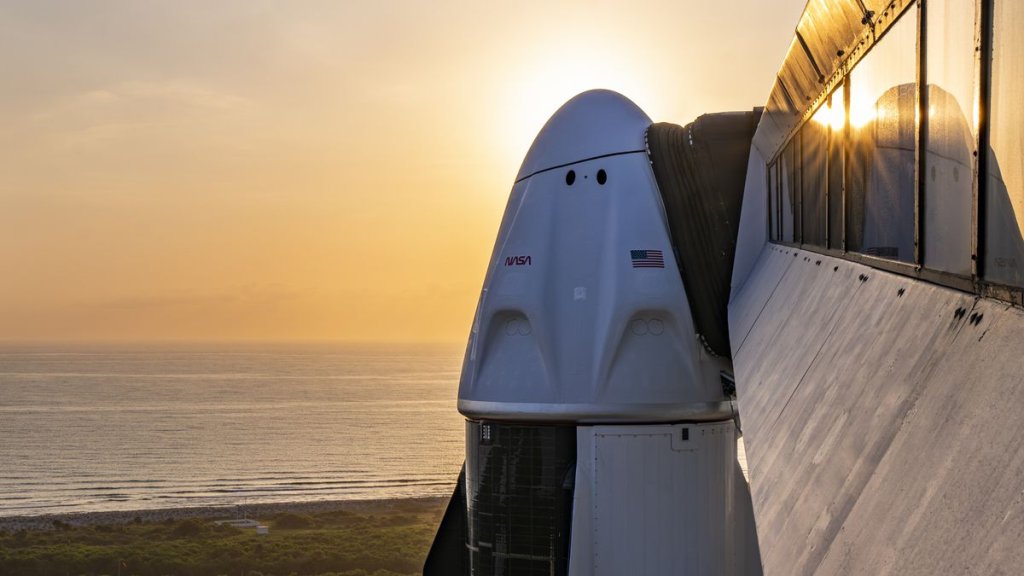The second Iranian-American in space joins a fully international crew readying for launch Friday (Aug. 25).
The SpaceX Crew-7 mission will launch to the International Space Station no earlier than Friday (Aug. 25) at 3:50 a.m. EDT (0750 GMT) and you can watch live here at Space.com, via a feed from NASA Television. The broadcast will begin at Thursday (Aug. 24) at 11:45 p.m. EDT (0345 GMT Friday, Aug. 25).
A backup launch opportunity is available at 3:27 a.m. (0727 GMT) on Saturday (Aug. 26) if weather or technical issues arise.
Crew-7 passed its flight readiness review with no major issues, NASA officials said in late-night update Thursday (Aug. 24). Weather conditions also look good for launch, with only a 15% probability of violating weather constraints, according to Patrick Space Force Base, which manages the airspace in the region of the launch site at NASA’s Kennedy Space Center in Florida.
Four astronauts will head to space for Expeditions 69/70: NASA astronaut Jasmin Moghbeli, the second Iranian-American in space; European Space Agency (ESA) astronaut Andreas Mogensen; Japan Aerospace Exploration Agency (JAXA) astronaut Satoshi Furukawa; and Konstantin Borisov of Russia’s space agency, Roscosmos.
Related: SpaceX’s Crew-7 mission will launch international crew to ISS
It’s been nearly two decades since any Iranian-American flew in space; the first such person was space tourist Anousheh Ansari, who self-funded her own ISS mission in 2006.
“I think it’s important,” Moghbeli told Space.com of her own milestone aboard Crew-7, in a pre-launch video interview on July 25 from NASA’s Johnson Space Center in Houston. “I think people really — especially younger people — when they can connect to someone, it makes them really believe they can do something as well.
“And so anytime we are adding diversity to who is flying in space,” Moghbeli added, “I think we’re opening the door for future generations, for more people to believe they can do this as well.”
Moghbeli’s family, incidentally, celebrates both Christmas and Hannukah and those events will fall during her approximately 190 days in space. She plans a felt menorah for Hannukah. In July, she said was even mulling over the possibly of making latkes, potato pancakes traditionally eaten at Hannukah, while on the ISS.
Related: Meet the SpaceX Crew-7 astronauts launching to the ISS on Aug. 25
Mogensen will be on his second mission in space after a 10-day Soyuz spacecraft mission on the ISS in 2016, which made him the first Danish person in space. In the intervening time there has been immense progress from SpaceX, which began flying operational commercial crew missions on behalf of NASA in 2020 while continuing to send cargo shipments on the uncrewed variant of Dragon since 2010.
NASA-funded missions by SpaceX carry astronauts to the ISS onboard the fully reusable Crew Dragon spacecraft and the partially reusable Falcon 9 rocket, whose first stage rockets come back to Earth on their own to touch down on a drone ship or on land.
“SpaceX, what they have achieved in the last 10 or so years has been remarkable. And working with them has been a pleasure,” Mogensen said in another prelaunch interview July 25 with Space.com. “They’ve come an incredibly long way, and it’s really a pleasure to see how much they’ve achieved and how much really they’ve changed human spaceflight, when it comes to reusability.”
Related: How many astronauts can fly on a SpaceX Crew Dragon capsule?
Furukawa, who also went to space in 2016 for Expeditions 28 and 29, said he knows already what he will be missing on Earth. “I really missed having a walk in the green forests because onboard the space station, I really miss a green colors,” he said in another prelaunch interview July 25.
From space, he said, the astronauts can see the blue Earth, or the brown desert, but green is a bit harder to spot. Furukawa then turned to technology to fill the gap: “I tried to watch video of forest, and it was a weird feeling,” he said. “I really miss green color much more than I expected.”
Borisov, on his first flight, said among the 2.5 hours of exercise astronauts perform daily he hopes to integrate his beloved yoga in the routine. But how to do it without gravity will be difficult: “I know what to do with breathing,” he said on July 25, referring to a common tool yogis use to hold stretches or difficult poses.
But in weightlessness, he will have to forge his own path as few other astronauts have tried yoga aside from ESA’s Samantha Cristoforetti. Nor would a typical video filmed with Earth’s gravity, he added, serve as a helpful guide absent that force.

